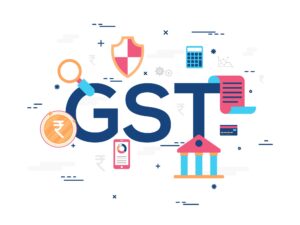Selling on Amazon Without GST: A Comprehensive Guide for Sellers
In recent years, Amazon has emerged as a dominant force in the e-commerce landscape, providing sellers with an unparalleled platform to reach millions of customers worldwide. However, for many aspiring sellers, navigating the complexities of taxation, such as the Goods and Services Tax (GST), can be daunting. The question often arises: Can I sell on Amazon without GST? Let’s delve into this topic and provide clarity for sellers looking to explore this avenue.
**Understanding GST**

GST, or Goods and Services Tax, is a value-added tax levied on most goods and services sold for domestic consumption. It is an indirect tax, meaning the burden of the tax ultimately falls on the end consumer. In many countries, including India, GST is a mandatory requirement for businesses above a certain threshold of turnover.
**Selling on Amazon Without GST**
Contrary to common belief, it is possible to sell on Amazon without GST, but there are some important considerations to keep in mind:
1. **Threshold Limits**: In some countries like India, businesses are required to register for GST once they cross a certain turnover threshold. For small-scale sellers whose turnover falls below this threshold, GST registration may not be mandatory. However, it’s crucial to stay informed about the latest regulations and threshold limits set by tax authorities.
2. **Nature of Products**: Certain products may be exempt from GST or fall under a lower tax bracket. Sellers dealing exclusively in such products may not be required to register for GST. Again, understanding the tax implications specific to the products you intend to sell is essential.
3. **Business Structure**: The structure of your business, whether it’s a sole proprietorship, partnership, or corporation, can impact your GST obligations. Different business structures have different tax liabilities, so it’s advisable to consult with a tax advisor to determine the most suitable structure for your business.
4. **International Selling**: If you’re selling on Amazon’s international marketplaces, the tax laws of each respective country come into play. Some countries may have GST or equivalent taxes, while others may not. Conduct thorough research or seek professional advice to understand the tax implications of selling internationally.
5. **Compliance and Legalities**: While you may not be required to register for GST, it’s essential to comply with other legal requirements and regulations governing e-commerce businesses. This includes obtaining necessary licenses, adhering to consumer protection laws, and maintaining accurate financial records.
**Conclusion**
In conclusion, while it is technically possible to sell on Amazon without GST, it’s crucial to approach the matter with careful consideration and awareness of the relevant tax laws and regulations. While avoiding GST may seem advantageous in the short term, non-compliance can lead to legal issues and financial penalties down the line. As with any aspect of business, seeking professional advice and staying informed about the latest developments in taxation is key to ensuring compliance and long-term success as an Amazon seller.
5 Low Tax Products to Sell on Amazon: Maximizing Profits with Minimal Tax Liabilities
When it comes to selling products on Amazon, choosing the right merchandise is crucial for success. In addition to considering market demand and competition, savvy sellers also take into account tax implications to maximize profits. Here are five low-tax products that you can sell on Amazon, helping you minimize tax liabilities while still generating revenue:
1. **Books**: Books, especially those classified as essential reading or educational material, often enjoy favorable tax treatment in many jurisdictions. Depending on your location, books may be subject to reduced or zero-rated taxes, making them an attractive option for sellers looking to minimize tax burdens. Additionally, selling used books can further reduce tax liabilities since they may be exempt from certain taxes altogether.
2. **Basic Apparel and Accessories**: Clothing items such as basic t-shirts, socks, and hats are often taxed at lower rates compared to luxury or designer items. By focusing on affordable, everyday apparel and accessories, sellers can take advantage of lower tax rates while catering to a broad customer base. Additionally, items like children’s clothing may be exempt from sales tax in some regions, providing further tax benefits for sellers.
3. **Non-Perishable Food Items**: Certain non-perishable food items, such as grains, pasta, and canned goods, may be subject to lower tax rates or exemptions in some jurisdictions. These essential food staples are in constant demand, making them reliable products to sell on Amazon. Sellers can explore sourcing locally produced or organic food items, which may qualify for additional tax incentives or exemptions in certain regions.
4. **Home and Kitchen Essentials**: Everyday household items like cleaning supplies, kitchen utensils, and basic home decor typically incur lower tax rates compared to luxury or non-essential goods. By focusing on practical essentials that appeal to a wide audience, sellers can minimize tax liabilities while capitalizing on consistent demand. Additionally, eco-friendly or sustainable home products may qualify for tax credits or incentives in some areas, offering further tax advantages for sellers.
5. **Health and Personal Care Products**: Basic health and personal care items such as vitamins, skincare products, and hygiene essentials are often taxed at reduced rates or exempt from certain taxes altogether. As consumers prioritize health and wellness, there is a growing demand for these types of products on Amazon. Sellers can explore niche categories within the health and personal care sector to find low-tax items with high-profit potential.
In conclusion, selecting low-tax products to sell on Amazon can help sellers maximize profits while minimizing tax liabilities. By focusing on essential goods with favorable tax treatment, sellers can build a sustainable business model that withstands regulatory changes and economic fluctuations. However, it’s essential to consult with tax professionals or legal advisors to ensure compliance with local tax laws and regulations when selling on Amazon or any e-commerce platform.